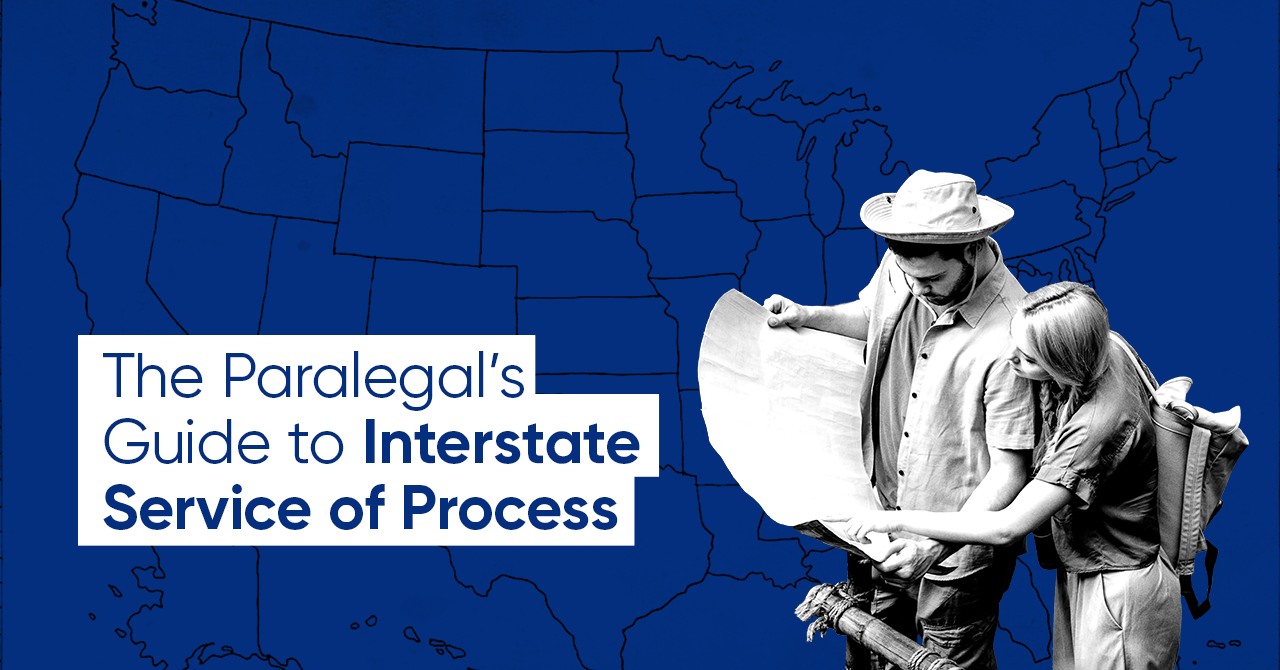
Service of process is a critical step in the legal system, ensuring that individuals and entities are properly informed of legal actions brought against them. However, the process can become complex when it involves parties in different states. As a paralegal, understanding the intricacies of interstate service of process is essential for effective legal support. This guide aims to shed light on the key aspects of serving process across state lines.
Table of Contents
Understanding Interstate Service of Process
Interstate service of process refers to the act of serving legal documents on a party located in a different state than where the legal action is initiated. Each state has its own set of rules and regulations governing this process, making it crucial for paralegals to familiarize themselves with both the rules of the state where the case is filed (the originating state) and the rules of the state where service is to be made (the receiving state).
Compliance with Laws in the Receiving State
Before initiating service of process in a different state, it’s vital to research and comprehend the service of process laws and regulations in that specific state. The receiving state may have unique requirements regarding acceptable methods of service, timeframes for response, and other important details that must be strictly followed. Therefore, jurisdiction research is essential for paralegals that are conducting interstate service of process. For instance, in California, legal documents may be sub-served after three unsuccessful attempts, while in Florida, only one unsuccessful attempt might be required.
Paralegals must approach cautiously as this variability can be observed in several states. Not only are state laws crucial to research but every local county can have a unique set of regulations regarding service of process. In California, for instance, the rules for service of process can vary from one county to another. Some counties may require up to four unsuccessful service attempts, while others, such as Orange County and Los Angeles County, require only three attempts.
Further, engaging local counsel in the receiving state is often prudent. They possess an in-depth understanding of the local laws, rules, and procedures, and can provide valuable insights and guidance to ensure compliant and effective service of process.
Methods of Interstate Service
Several methods can be employed to serve process across state lines, including:
a. Personal Service
In some cases, a process server physically travels to the recipient’s location in the receiving state to personally deliver the legal documents. This method is often considered the most reliable and legally robust.
b. Service by Mail
Certain states allow service of process via certified mail with return receipt requested. However, it’s important to verify if the receiving state permits this method and if any additional steps are required for it to be legally recognized.
c. Designated Agent Service
Many states require entities, like corporations or limited liability companies, to designate an agent to accept service of process. Serving the designated agent in the receiving state is a common and accepted method.
The Golden Rule: Document Everything
The golden rule is to document everything. Documenting the entire process of service, including dates, methods used, and responses received, is essential. Accurate record-keeping helps in case management, compliance verification, and potential challenges related to service. Instructing your process server to jot down details like the cars parked nearby and their license plates can be a lifesaver in the long run because you never know when you’ll need that information.
Why is having such documentation vital?
- Serves can get challenged months down the road
- Most servers are swamped with 20+ documents daily
- Servers are human! Sometimes memory escapes them!
Things like tattoos and glasses? They’re like a server’s secret weapon – they help identify the right person. And trust me, those notes hold up like gold if your service gets rejected.
Sometimes … your safety net is a Harley Davidson tattoo. Our veteran process serving manager shared this anecdote:
“Months after a serve, ‘John Doe,’ the individual being served, insisted in court that he had never been served. But our server had noted a Harley Davidson tattoo on his upper arm. Fast forward to the courtroom, where the judge had John Doe remove his shirt, and voila, the Harley Davidson tattoo was right there on his arm, saving the day. It just goes to show those notes can make or break a successful serve!”
Other Key Considerations
Clear and efficient communication with all parties involved, including the process server, local counsel, and the court in the originating state, is crucial for seamless coordination throughout the service of process procedure.
And if serving process internationally, the Hague Convention on the Service Abroad of Judicial and Extrajudicial Documents should be consulted. The convention provides a standardized process for serving documents in member countries and is a vital consideration for cross-border service.
Now You’re Ready for Success
Interstate service of process demands meticulous attention to detail and a thorough understanding of the laws in both the originating and receiving states. As a paralegal, being well-versed in the intricacies of serving legal documents across state lines equips you to navigate this essential aspect of the legal process effectively and ensures that justice is served in a lawful and organized manner. Always stay updated with the latest laws and regulations to provide the best support to your legal team.
If you or your law firm need assistance with interstate service of process, we’re here to help. Place your process serving order to have one of our registered process servers deliver your legal documents anywhere in the U.S. You can schedule a call or book a demo today to get started.
Get Started Today
Spend more time on billable client hours and less time tracking down conformed copies and proofs of service.

